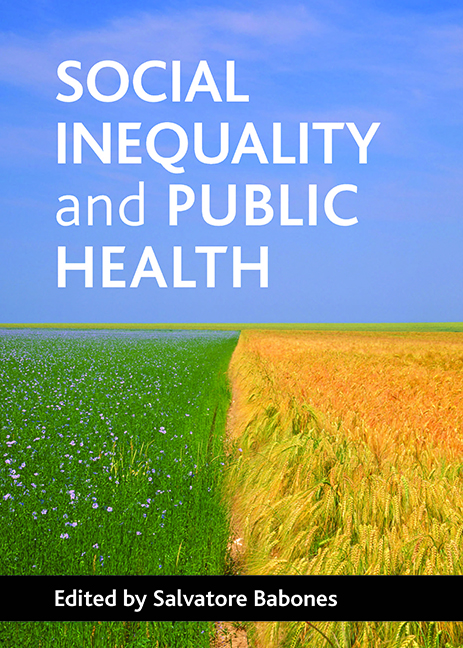Book contents
- Frontmatter
- Contents
- List of figures, tables, maps and boxes
- Preface
- Notes on contributors
- one Introduction
- Pathway 1 Differences in individual health behaviours
- Pathway 2 Group advantage and disadvantage
- Pathway 3 Psychosocial factors in individual health
- Pathway 4 Healthy and unhealthy societies
- Conclusions Public understanding of the new public health
- Index
nine - Inequality, psychosocial health and societal health: a model of inter-group conflict
Published online by Cambridge University Press: 22 January 2022
- Frontmatter
- Contents
- List of figures, tables, maps and boxes
- Preface
- Notes on contributors
- one Introduction
- Pathway 1 Differences in individual health behaviours
- Pathway 2 Group advantage and disadvantage
- Pathway 3 Psychosocial factors in individual health
- Pathway 4 Healthy and unhealthy societies
- Conclusions Public understanding of the new public health
- Index
Summary
Introduction
The aim of this chapter is to present a model that links inequality with psychosocial health, and psychosocial health with group violence. In the process, I explore linkages between identity, inequality and the behaviour of groups using models and concepts from psychology, politics, sociology, economics and demography. At a variety of levels, these linkages can be thought of as driving a major public health outcome, namely violence.
Over the past two decades, a large literature has developed, which identifies violence as a public health problem. This literature has emphasised individual acts of violence that have a relatively high degree of prevalence in the US (Rosenberg and Fenley, 1991; Koop, 1992; Rosenberg, 1992; Krug et al, 2002). A number of studies on how to manage the problem, and specifically how to prevent acts of violence (Mercy and O’Carroll, 1988; Mercy et al, 1993; Saltzman et al, 2000), parallel the work that casts violence as a public health problem. If individual acts of violence spread out across time are a chronic public health problem, then it follows logically that a large number of interconnected acts of violence, occurring over a short period of time, should be considered an acute public health problem. Indeed, the public health literature already acknowledges ethnic violence as one form of the violence that the public health community needs to address (Foege et al, 1995). Hence, studying such violence with a view to understanding its causes and the conditions under which the likelihood of such acts can be reduced should form an important focus within the field of public health policy. The motivation for this chapter is to begin to study one such phenomenon.
Specifically, I use an existing model of individual identity, which makes predictions about behavioural outcomes at the individual level. In this model, inequality plays an instrumental role in shaping individual identity. Following this, I aggregate up from the individual to the group to demonstrate implications of this model for group behaviour. The implicit argument is that certain types of group behaviour resulting from inequality are symptomatic of ill-health at the individual level. This psychosocial model is linked to demographic change to demonstrate the kinds of outcomes that can occur at the aggregate level. These population-level outcomes can also be viewed as a form of societal ill-health.
- Type
- Chapter
- Information
- Social Inequality and Public Health , pp. 131 - 142Publisher: Bristol University PressPrint publication year: 2009



